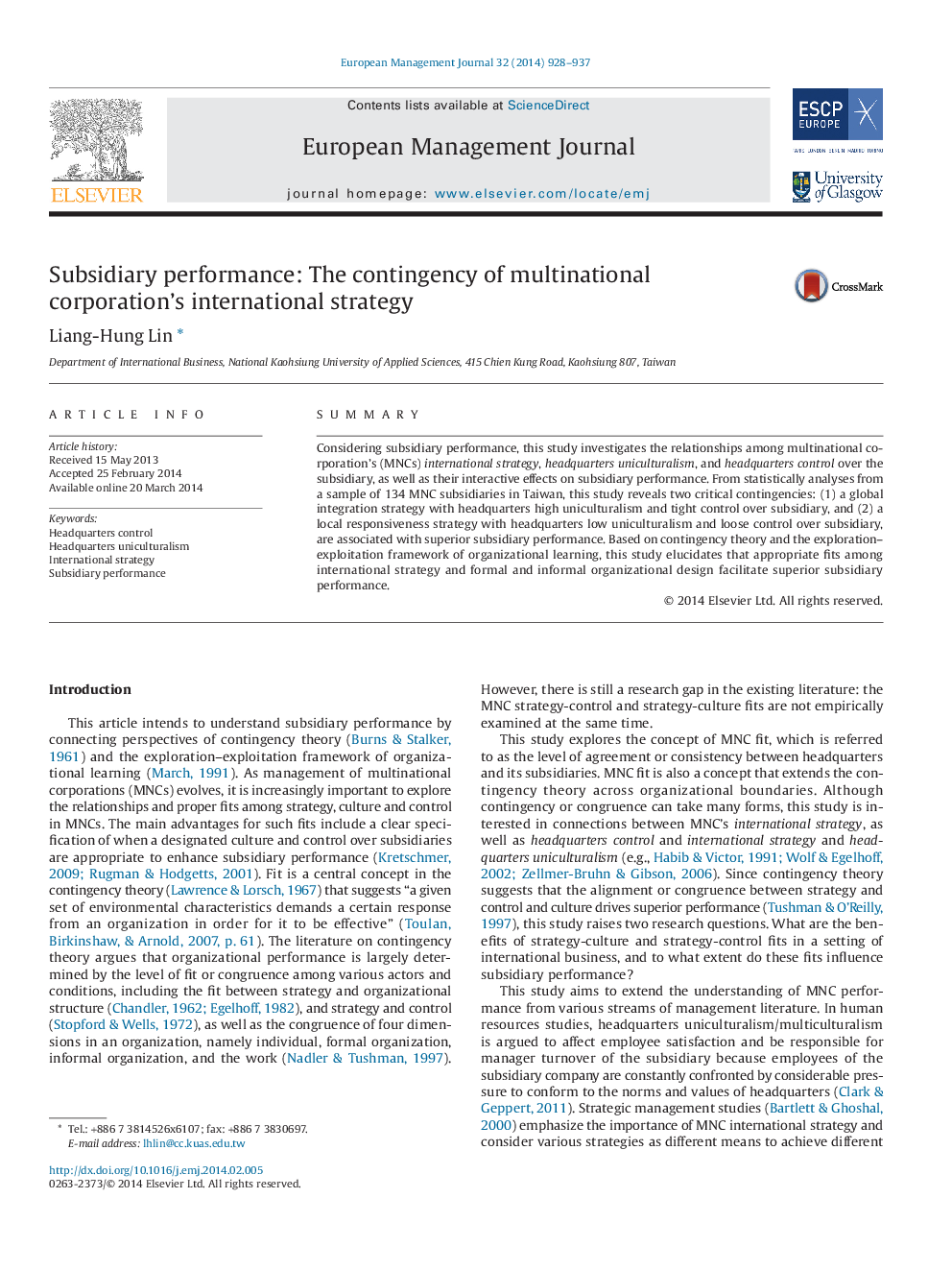| Article ID | Journal | Published Year | Pages | File Type |
|---|---|---|---|---|
| 1014927 | European Management Journal | 2014 | 10 Pages |
•Examine MNCs’ international strategy, HQ uniculturalism and HQ control.•High HQ uniculturalism and tight HQ control for a global integration strategy.•Low HQ uniculturalism and loose HQ control for a local responsiveness strategy.
SummaryConsidering subsidiary performance, this study investigates the relationships among multinational corporation’s (MNCs) international strategy, headquarters uniculturalism, and headquarters control over the subsidiary, as well as their interactive effects on subsidiary performance. From statistically analyses from a sample of 134 MNC subsidiaries in Taiwan, this study reveals two critical contingencies: (1) a global integration strategy with headquarters high uniculturalism and tight control over subsidiary, and (2) a local responsiveness strategy with headquarters low uniculturalism and loose control over subsidiary, are associated with superior subsidiary performance. Based on contingency theory and the exploration–exploitation framework of organizational learning, this study elucidates that appropriate fits among international strategy and formal and informal organizational design facilitate superior subsidiary performance.
